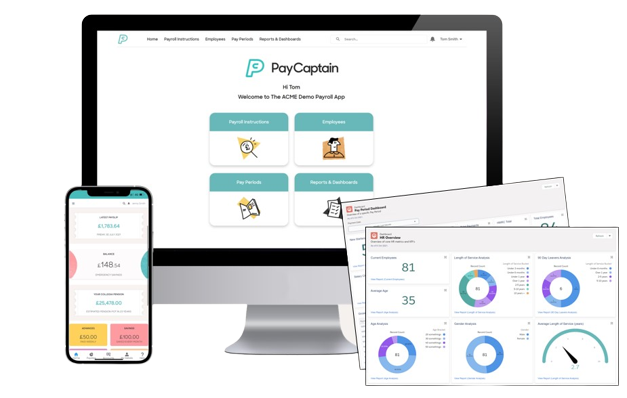Mental illness is a growing issue in the workplace.
In fact, mental health problems are the leading cause of long-term absences from work and presenteeism (coming to work but being less productive).
The World Health Organisation reports that 1 out of every 4 people will be living with a mental or neurological disorder at some point during their lifetime.
In order to support employees' mental health, employers need to have an understanding of what it entails and how they can provide support for those who suffer from it.
This blog post will discuss 4 proven ways you can increase your company's productivity by supporting your employees' mental health!
1. Promote a healthy work-life balance.
Contrary to popular belief, promoting a healthy work-life balance is about more than just encouraging employees to go home on time.
It's about creating a more holistic approach to health within the workplace.
Here are a number of different forms it can take:
Offering Mental Health Focused Employee Benefits
With platforms like Perkbox, offering mental-health-focused benefits has never been easier.
Some employers are even choosing to offer perks like unlimited holiday as an employee benefit. Meaning that instead of having set days for annual leave each year, staff are encouraged to take as many vacation days as they think are appropriate – so long as they can get their job done and it doesn’t impact their wider team.
This could potentially help employees to feel more trusted and empowered. But also not ashamed about taking time off when they need it, allowing them to show up at their best. In fact, Netflix, who were ranked by Forbes as one of the best employers in the world, began offering unlimited holidays to its employees back in 2010.
Having a great range of employee benefits can also work wonders for attracting and retaining top talent.
Creating A Healthy & Transparent Workplace Culture
An organisational culture tends to emerge over time, shaped by the organisation's leadership and their consistent actions.
Does your company actively encourage employees to talk openly about their concerns? Do employees know who to go to if they're struggling, and most importantly, do they feel supported in expressing their feelings?
For example, if employees are constantly made to feel guilty about feeling stressed or expressing emotion, they are more likely to begin withdrawing over time.
Be very mindful of the culture being created in the workplace, as this will create a ripple effect across the company.
Introducing Flexible Working Policies
Workplace Psychologist & Professor Anthony Koltz recently went viral for predicting "The Great Resignation".
This was based on the pandemic having caused employees to re-evaluate what they want from their work and life. But contrary to popular belief, flexible working isn't always about simply working from home.
Flexible working is about giving employees the choice to work in a way that works best for them.
2. Provide employees support around their financial wellbeing.
Financial stress has long been known to be one of the leading causes for anxiety and depression.
Employees who are struggling financially may also feel too embarrassed or ashamed to speak up about their situation, so it's important that employers do what they can to help employees manage this type of stress before it gets out of control. Offering financial counseling is a good way to do this.
That's why at PayCaptain, we've created a payroll system that not only makes managing payroll a breeze. But also incorporates financial wellbeing features for employees through a dedicated app.
3. Create opportunities for community building
Loneliness has often been referred to as the silent killer due to its impact on mental health...
But don't think that just because you have a team together in the office, that employees aren't suffering from loneliness.
In fact, this can be especially prevalent in large companies.
If your company has over 100 employees, it can become difficult to retain that feeling of belonging and camaraderie at work.
In the context of a company, workplace loneliness refers to employees feeling disengaged and disconnected from work and peers. This may come from a sense of not feeling heard or understood.
When employees don't feel a connection with peers, they will often become emotionally detached from the company, which can significantly impact performance.
Some companies have started to use tools like Slack to create and encourage the formation of micro-communities with colleagues. This can help to cater for a wide-range of interests (from gaming to hiking) and help to tackle feelings of loneliness at work.
4. Ensure your management team is adequately trained to spot and deal with mental health challenges.
One of the most important things that employers can do is ensure their management team is well-equipped to deal with mental health issues.
It's not enough for managers to just be aware of what they're supposed to do if an employee comes forward about mental illness. They need specific training, support and resources in order to help employees navigate these types of issues.
In addition to this, it's also a good idea for managers and supervisors to have an understanding around the importance of confidentiality. This is something that can affect employees' trust in their employer if they fear being stigmatised by speaking up about mental health challenges.
Mental Health charity Mind offer a range of training programmes for companies and their teams.
Well done on taking the first step
The first step toward supporting your employees with their mental health is educating yourself around these issues, so well done on taking the first step.
If you’d like to know more about how PayCaptain could support you with our unique range of financial wellbeing tools for employees - get in touch with one of our friendly advisors today.

















